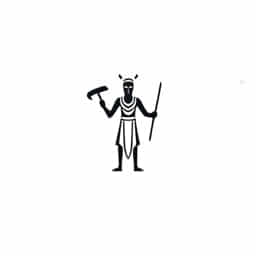In Yoruba traditional knowledge and spirituality, ‘Ogun Isoye ati Imo’ refers to the herbal or spiritual remedy used to enhance memory (isoye) and knowledge (imo). Deeply rooted in the cultural, medicinal, and metaphysical practices of the Yoruba people, this concept encompasses both physical concoctions made from herbs and symbolic rituals or incantations aimed at empowering the mind. The term is widely known among students, scholars, traditional healers, and anyone seeking intellectual clarity or success in education or spiritual pursuits. Understanding Ogun Isoye ati Imo requires a close look at its historical context, practical application, and symbolic significance within Yoruba belief systems.
Understanding the Terms: Isoye and Imo
What Is Isoye?
Isoye refers to memory retention the mental ability to remember what one has learned or experienced. In Yoruba belief, memory is not just a mental function but a spiritual connection to knowledge, ancestors, and past lives. Therefore, enhancing memory is also a spiritual act that aligns the individual with their higher purpose and destiny.
What Is Imo?
Imo simply translates to knowledge or wisdom. This includes both formal education and spiritual insight. In Yoruba cosmology, Imo is a divine gift that one can increase through discipline, ritual, or the intervention of higher spiritual forces. Seeking Imo is considered a noble pursuit, particularly for those in roles of leadership, teaching, or divination.
The Concept of Ogun in Yoruba Tradition
Ogun as a Spiritual Force
In this context, Ogun does not refer to the orisha of iron and war, but rather to a prepared remedy or solution. It is an herbal or spiritual tool meant to bring about specific results. Ogun Isoye ati Imo is, therefore, a specialized preparation or ritual tool used to improve mental acuity and academic success.
How Oguns Are Used
Yoruba ogun can be physical mixtures herbs, roots, and bark combined through traditional knowledge passed down through generations. Alternatively, an ogun might include prayers, incantations (known as ofò or oriki), and rituals performed to activate its potency.
Herbal Ingredients in Ogun Isoye ati Imo
Common Herbs Used
Traditional healers, also called babalawo or onisegun, use specific herbs known to support mental clarity. While formulas can vary, some widely known herbs include:
- Oruwo: Known for spiritual purification and focus.
- Ewe Akoko: Used for blessing and enhancing brain activity.
- Afomo: A calming herb that helps manage anxiety and increase concentration.
- Itakun omi: Used in rituals involving water and mental awareness.
Methods of Preparation
The herbs may be boiled into a tea, ground into powder for inhalation, or made into a paste to be rubbed on the head. In some cases, the preparation is accompanied by chants and invocations directed at Orunmila, the orisha of wisdom and divination.
Spiritual Practices for Enhancing Memory
Prayer and Incantation
In Yoruba tradition, words have power. An Ogun Isoye ati Imo may include the recitation of sacred texts or chants believed to unlock divine support. Examples include:
- Ofò isoye, ki ori mi ma gbagbe ohun ti mo ka (Incantation for memory, that my head may not forget what I read.)
- Invocation to Orunmila for divine knowledge and insight.
Use of Sacred Objects
Items such as cowrie shells, white chalk (efun), and kola nuts are often used during rituals. They symbolize purity, clarity, and connection to the spirit realm. These objects may be placed near the study area or carried in a pouch for continuous spiritual reinforcement.
Who Uses Ogun Isoye ati Imo?
Students and Scholars
In Nigeria and other parts of the Yoruba-speaking world, it’s not uncommon for students preparing for major exams to seek out Ogun Isoye ati Imo. It is seen not as a replacement for study, but as a divine enhancement of natural learning ability.
Traditional Practitioners
Babalawo and traditional herbalists use Ogun Isoye to help apprentices or clients who are struggling with focus, forgetfulness, or who wish to expand their spiritual knowledge. The ogun is customized based on divination results and the unique needs of the individual.
Modern Perspectives and Adaptation
Blending Traditional and Modern Education
Some individuals combine the use of Ogun Isoye ati Imo with formal educational tools such as textbooks, meditation, and modern brain-training exercises. This reflects a syncretic approach that honors tradition while embracing contemporary methods.
Criticism and Skepticism
In today’s urban and globalized settings, some view these practices as superstition. However, others see them as part of cultural identity and ancestral wisdom. Scientific interest in herbal medicine has also led to some validation of the herbs used in these preparations.
Precautions and Ethical Use
Avoiding Misuse
Ogun Isoye ati Imo should not be confused with spiritual manipulation or forced wisdom. It is meant to enhance one’s effort and intention, not to replace learning or ethical study habits. Using it to try to cheat or control others is considered spiritually dangerous and disrespectful.
Seeking Qualified Guidance
Because herbal remedies and spiritual practices require deep knowledge, individuals are advised to consult trained traditional healers rather than attempt to create an ogun themselves without understanding its full context and use.
Ogun Isoye ati Imo reflects the Yoruba people’s profound respect for knowledge, memory, and spiritual connection. It serves not only as a practical aid for learning but also as a symbolic gesture honoring the divine source of wisdom. Through a blend of herbal medicine, ritual, prayer, and personal effort, individuals seek to align their minds with clarity and truth. In a world increasingly dominated by digital and artificial intelligence, the rooted, organic approach of Ogun Isoye reminds us that true knowledge begins within guided by nature, tradition, and spirit.
